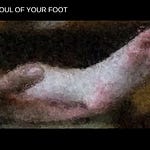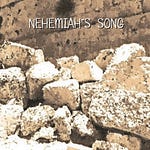PSALMS 137 This psalm by Jeremias, written as an exile in Babylon is very hard for modern people to hear without feeling deeply offended by the violent passions expressed. But we miss the meaning of this Psalm to the Children of Israel in Jeremias’ day. And we do because we do not know what the metaphorical meaning carried by the literal Empire of Babylon was to the writers of the Hebrew sacred text. The Empire of Babylon carried a huge significance to God and the children of Israel. It was the spring of civilization and its rule of law. This civilized rule of law was not celebrated by the God of Israel. It was despised as spiritual prostitution by their God. Only the rule of God’s Spirit was viewed as a righteous kind of life. And these two ways of living were polar opposites and viewed as such. They were mutually exclusive. In the Book of Revelation we see this metaphorical Babylon referenced in a most pronounced way. And if you understand what Babylon, what civilization’s rule of law meant to God you would understand that it was and ought to be a viscerally despised aspect of human culture, and not the thing most humans celebrate and are unduly proud of. The rule of law was the result of the fall, which was triggered by mankind feeding on a tree of the knowledge of what constitutes good and evil human behavior. That impulse to feed on that information, which God had forbidden man to feed on, strangely enough, was a product of mankind subjectively sinking into the delusion of Performance-Based-Acceptance. Babylon thus represented to God self-righteous legalism, an earning of God’s love by improvements made to our performance. God hates this delusion and the self-righteousness it fosters in us humans. And here is the interesting thing about that hated delusion and its metaphorical embodiment in Babylon. Whenever we invest in self-righteous legalism, rather than choosing to trust that God loves us unconditionally and would thus forgive our bad performance, we invariably sacrifice the undeveloped aspects of our humanity to this delusional self-righteous version of God. We see those undeveloped aspects of our humanity as being not yet ready for prime time, and so we suppress those aspects of us. This suppression of our humanity is metaphorically expressed in the literal child sacrifices that the fertility cult of Babylon (from which the fertility cults that proliferated around the world sprang) lived out. So, when the writer finishes by blessing those that cruelly kill the children of Babylon, he is saying that the very affect that Israel’s own self-righteousness has had on Israel should come to Babylon too. God hates it when we suppress our humanity. He want’s His spirit/mentality of love to constrain, to harness our human desires and feelings. And his judgment on our species suppressive religious self-righteousness is to show us a picture of what we have long been doing to ourselves. God’s judgment does just this sort of thin, even today. The entire world is about to experience God’s judgment falling on it. And the way this judgment will manifest is that God will give us what we thought we wanted, to be our own god. And the time of tribulation/trouble that will and I think, is already unfolding, is God backing off from providing what God provides via Love, so that the world becomes enshrouded in the loveless collective long dark night of the soul. This Psalmist, like the Apostle John understood the metaphorical association the biblical God had with Babylon. He understood that being exiled to Babylon was God’s way of judging Israel’s already spiritually embodied exile to self-righteousness. Of course to the children of Israel the worship of Canaanite gods (local version of Babylon’s gods) came to be misunderstood as just the literal worship of foreign Gods, instead of the embrace of performance based acceptance that fertility cults essentially were. And so when Jesus arrives on the scene and moves to correct this, and show that God hates performance based acceptance’s self-righteous legalism, they could not accept that and killed Him for it. And the same thing happened in the Christian community. We accepted the idea of an atoning God on one hand and embraced self-righteous legalism on the other. We are exactly like the Children of Israel. We have done exactly the same mistake. And God will resolve the idolatry of us both simultaneously in this time of trouble. Christians believe they are better than the children of Israel because they embraced Jesus as the messiah. They aren’t. Both of us embraced God’s atonement gifts to us, and both have watered down that marvelous expression of unconditional forgiving love with self-righteous legalism. As I sit here writing this to you I can tell you that I know I have done this and am still making this same mistake. God is slowly purging this delusion from my life, but it is not all gone yet. The longing plea to never forget Jerusalem is meant to be remind us that when we first believed in Jesus, and relished His atonement for our sins, we experienced so much trust in god’s love. And it reminds us that as God has worked to root out of our hearts the deeply embedded self-righteous legalism that has infected our entire species we have had to face its presence in us. And that facing looks like God letting us trot out our legalistic gambits designed to render us more morally whole. He lets us become exiles in Babylon. That is a part of His gracious retraining of us, just as it was the Children of Israel. So, as you listen to this psalm grasp how important this sentiment is to God and important for us it is. It is pointing to the need for God to resolve the addiction in you and I to self-righteous legalism. Say with God; God do judge this evil self-righteousness in me. And I know it will cost me great suffering for you to do this purging. But go ahead and do it anyway. Just keep me in your loving arms when you bring this healing to me. And while you do, I will sing; If I forget what it was like to feel your unconditional love let me forget the skill of my right hand. Psalms 137:1 By the waters of Babylon, there we sat down and wept, when we remembered Zion. :2 On the willows there we hung up our lyres. :3 For there our captors required of us songs, and our tormentors, mirth, saying, “Sing us one of the songs of Zion!” :4 How shall we sing the LORD’s song in a foreign land? :5 If I forget you, O Jerusalem, let my right hand forget its skill! :6 Let my tongue stick to the roof of my mouth, if I do not remember you, if I do not set Jerusalem above my highest joy! :7 Remember, O LORD, against the Edomites the day of Jerusalem, how they said, “Lay it bare, lay it bare, down to its foundations!” :8 O daughter of Babylon, doomed to be destroyed, blessed shall he be who repays you with what you have done to us! :9 Blessed shall he be who takes your little ones and dashes them against the rock! By the waters of Babylon, there we sat down and wept, when we remembered Zion. On the willows there we hung up our lyres. How shall we sing the LORD’s song in a foreign land? If I forget you, O Jerusalem, l et my right hand forget its skill! Let my tongue stick to the roof of my mouth, if I do not remember you, if I do not set Jerusalem above my highest joy! Remember, O LORD, against the Edomites the day of Jerusalem, how they said, “Lay it bare, lay it bare, down to its foundations!” O daughter of Babylon, doomed to be destroyed, blessed shall he be who repays you with what you have done to us! Blessed shall he be who takes your little ones and dashes them against the rock! Music, audio recording & video © John Brusseau, 10/2/2025
Playback speed
×
Share post
Share post at current time
Share from 0:00
0:00
/
0:00
Transcript
Listen on
Substack App
RSS Feed










